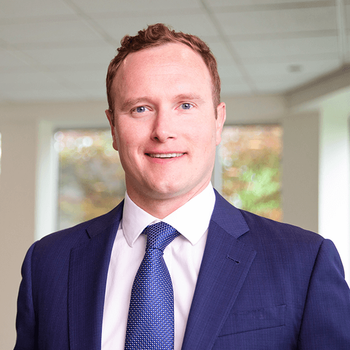Congenital Mirror Movement Disorder Overview
Learn About Congenital Mirror Movement Disorder
Congenital mirror movement disorder is a condition in which intentional movements of one side of the body are mirrored by involuntary movements of the other side. For example, when an affected individual makes a fist with the right hand, the left hand makes a similar movement. The mirror movements in people with this disorder primarily affect the arms, and the hands and fingers are always involved. This pattern of movements is present from infancy or early childhood and usually persists throughout a person's life.
Congenital mirror movement disorder is caused by variants (also called mutations) in at least three genes: DCC, RAD51, and NTN1.
Congenital mirror movement disorder is a very rare disorder. Its prevalence is thought to be less than 1 in 1 million individuals. Researchers suggest that it may be more common as some mildly affected individuals may never be diagnosed.
Congenital mirror movement disorder is inherited in an autosomal dominant pattern, which means one copy of the altered gene in each cell is sufficient to cause the disorder. In most cases, an affected person has one parent with the altered gene. Some people who have the altered gene never develop congenital mirror movement disorder; this is known as reduced penetrance.
Proliance Surgeons
John T. Heffernan, MD, is fellowship trained in all aspects of shoulder and elbow surgery and has extensive training in sports medicine surgery. His interests include arthroscopy of the shoulder and elbow, rotator cuff repair, shoulder instability, shoulder and elbow reconstruction, fracture care of the upper extremity, ligament reconstruction of the knee, and knee replacements. He is a Candidate Member of the American Shoulder and Elbow Surgeons and serves as a reviewer for their Journal of Shoulder and Elbow Surgery.During his medical training, Dr. Heffernan volunteered his time providing medical care as a sideline team physician for high school football teams of New Orleans, worked as an assistant team physician for Columbia University Athletics and assisted with the medical care of the New York Yankees and New York City FC (MLS). As a former varsity collegiate athlete in swimming, Dr. Heffernan is passionate about getting athletes of all ages back to their best performance.Dr. Heffernan is passionate about his work as an orthopedic surgeon and getting his patients back to their highest quality of life and activity. He believes that providing outstanding orthopedic care starts first with listening carefully to his patients.Dr. Heffernan is a fifth-generation native of the Puget Sound region and is proud to return home and take care of the people of his community. He and his wife, who is also a physician, are avid downhill skiers and enjoy cycling, hiking, being on the water, and spending time with their family. Dr. Heffernan is rated as an Advanced provider by MediFind in the treatment of Congenital Mirror Movement Disorder. His top areas of expertise are Congenital Mirror Movement Disorder, Frozen Shoulder, Tendinitis, and Tennis Elbow.
Summit Orthopedics
Reed C. Williams, M.D., M.B.S., R.M.S.K., is a physical medicine and rehabilitation (PM&R) physician specializing in nonoperative sports, musculoskeletal, and diagnostic and interventional ultrasound medicine at Summit Orthopedics. After his residency at Temple University in Philadelphia, he completed his fellowship at Swedish Medical Center in Seattle Washington. Dr. Williams strongly believes "that the art of medicine is just as important as the science behind it.". Dr. Williams is rated as an Advanced provider by MediFind in the treatment of Congenital Mirror Movement Disorder. His top areas of expertise are Tendinitis, Osteoarthritis, Bursitis, Synovial Osteochondromatosis, and Tenotomy.
Summit Orthopedics
Michael Freehill, M.D., is an orthopedic surgeon at Summit Orthopedics specializing in the surgical and nonsurgical care of the shoulder, with a special interest in adult joint reconstruction, joint replacement, sports-related injuries, and arthroscopic surgery. He serves patients in the Minneapolis St. Paul metro area. Dr. Freehill has 20-plus years of experience and is a frequent recipient of the Top Doctor designation in Mpls.St.Paul Magazine. He speaks both nationally and internationally, has authored numerous articles in professional publications, and has served as a course instructor for dozens of conferences. He completed his shoulder, elbow, and sports medicine fellowship at Columbia-Presbyterian Medical Center in New York. Dr. Freehill is rated as an Advanced provider by MediFind in the treatment of Congenital Mirror Movement Disorder. His top areas of expertise are Osteoarthritis, Frozen Shoulder, Osteolysis Syndrome Recessive, and Skeletal-Extraskeletal Angiomatosis.
Published Date: May 19, 2025
Published By: National Institutes of Health


